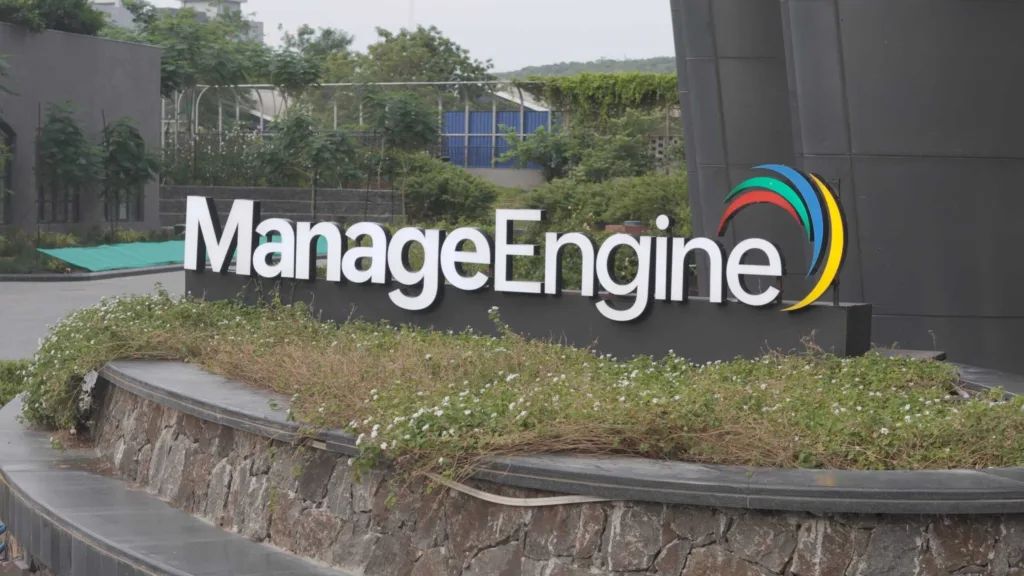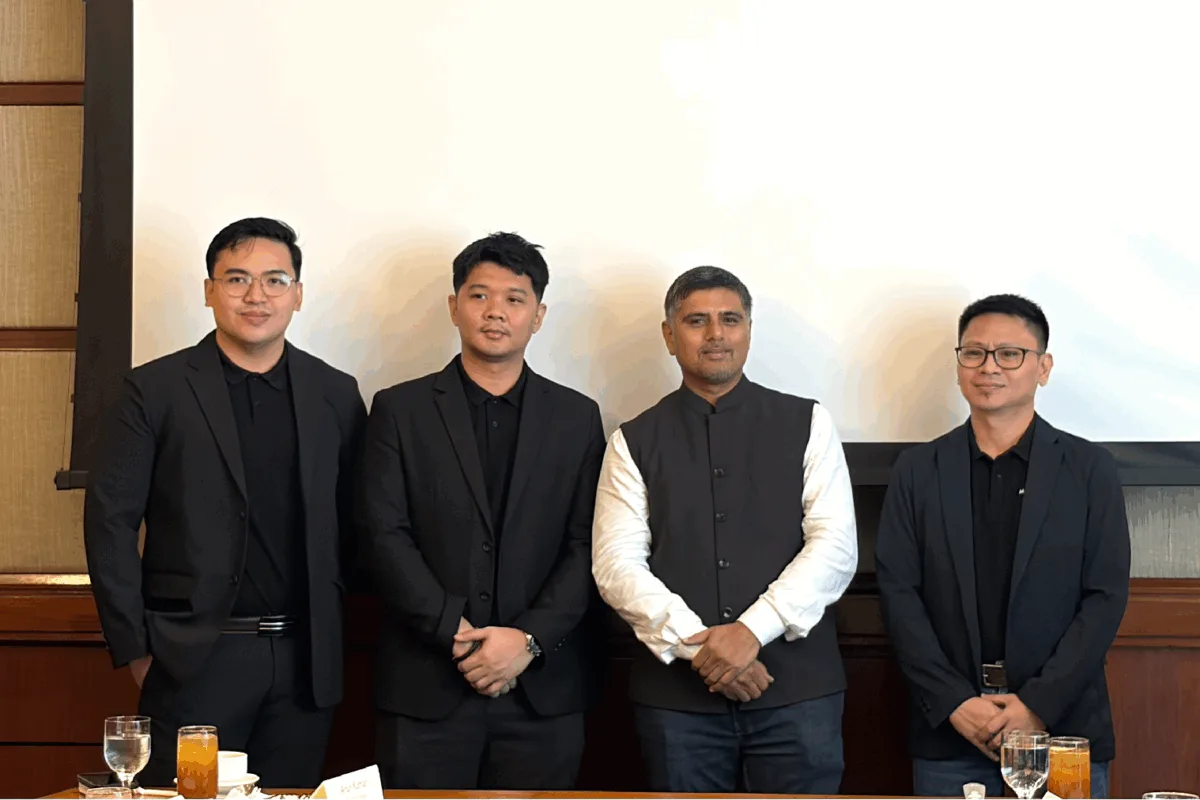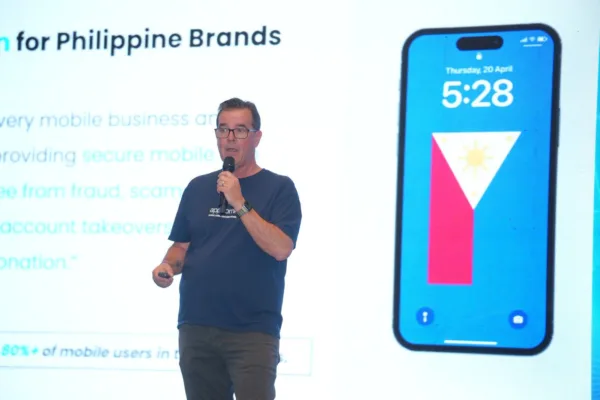When global tech firms map their priority markets, the Philippines is rarely in the top tier. But for ManageEngine—the IT management division of Zoho Corporation—the country is not just another stop in Southeast Asia. It is one of the Top 5 highest-priority markets in the region, and a market where the company is increasing its local investment and presence.

Photo by Techzine Global
Unlike many large tech vendors that narrow their focus to the world’s top 10–15 markets, ManageEngine is charting a different path. As a privately held, bootstrapped company, it plays what Regional Vice President Arun Kumar calls “the long game,” allowing it to make deep, sustained investments in emerging digital economies—including the Philippines.
Why the Philippines? “Each market is big for us.”
During an exclusive interview with FintechNewsPH, Kumar was clear: the Philippines stands out because of its strong digital momentum and its long-term potential. The country is already in ManageEngine’s Top 5 Southeast Asian markets, supported by more than 500 local enterprise customers across government, BFSI, healthcare, IT services, and BPO.
He emphasized that ManageEngine’s strategy is not about chasing only the largest economies:
“Each market is very big for us. We diversify our model across geographies—not just top markets. The Philippines is in the top five for us in Southeast Asia.” said Arun Kumar, Regional VP, ManageEngine.
This philosophy is backed by action. The company now has a local Philippine team, and a local office is in the roadmap, following recent office launches in Indonesia and Vietnam.
The priority, Kumar says, is to continue hiring Filipino talent, especially in technical consulting, customer engagement, account management, and partner ecosystem development.
A Perfect Storm: Digital Growth, AI Adoption, and Rising Cyber Threats
Kumar’s presentation highlighted a compelling backdrop:
- The Philippine digital economy is growing at a 20% CAGR, expected to reach US$40B by 2030.
- AI adoption is accelerating, with the local AI market projected to hit US$40M by 2030.
- Data center investments are booming, with a future US$2B market size.
- The Philippines ranked among the 20 most attacked countries in 2025, with:
- 9 ransomware incidents in the first six months
- 19 government websites breached
- 82 data breaches affecting 80M+ records
This convergence of opportunity and threat makes the Philippines a high-stakes market for IT resilience and cybersecurity — especially for sectors such as BFSI, where digital transactions and data volumes continue to increase.
And this is precisely where ManageEngine aims to play a central role.
AI as the Next Foundation of IT Management: Contextual, Conversational, Agentic
One of the strongest themes from Kumar’s briefing is ManageEngine’s multi-layer AI strategy, built specifically for enterprise IT.
1. Contextual AI
Embedded directly into ManageEngine’s products, contextual AI handles tasks such as:
- resource capacity planning
- anomaly detection
- predictive monitoring
- automated risk recommendations
Kumar explained this in simple language during your interview:
“For example, based on 3-year trends, the system can tell you when you need more servers or infrastructure. These are proactive decisions the AI helps you plan for.”
2. Conversational AI (Zia)
Powered by LLMs, this lets IT teams query their infrastructure like talking to ChatGPT:
- “Show me all endpoints with critical vulnerabilities.”
- “Generate a change management plan for a new data center.”
- “Explain why CPU loads spiked last night.”
Kumar describes it as a virtual assistant built for IT teams.
3. Agentic AI (The Future Direction)
This is the most forward-leaning piece of the roadmap: autonomous agents capable of assisting with decision workflows.
Kumar shared an example, “If IT teams are busy, the agentic model can decide which vulnerabilities to patch first.”
ManageEngine is already building an Agent Studio, enabling enterprises to deploy AI agents for real IT workflows.
A Unified Platform to Replace Siloed IT Tools
Across the Philippine market, Kumar sees a recurring problem: organizations use too many disconnected point solutions, especially for cybersecurity and IT management.
This results in:
- incomplete visibility
- reactive responses
- fragmented data
- slower incident remediation
ManageEngine’s answer is a unified IT management + cybersecurity platform, tightly integrated end-to-end.
“When your data does not talk to each other, you are always reactive. Our approach is integration + AI + cybersecurity—together.”
This is especially critical for lean IT teams, which in the Philippines often consist of only 5–10 people supporting 1,000–2,000 users.
Self-Hosted LLMs and Data Sovereignty: A Key Advantage for BFSI/Fintech
Another strategic differentiator: ManageEngine runs its own global network of 18 data centers, instead of relying solely on hyperscalers.
This matters because:
- It supports data privacy and sovereignty requirements.
- It avoids unpredictable AI usage costs.
- It offers an option for self-hosted, smaller LLMs that are cost-efficient and aligned with specific IT tasks.
This makes the ManageEngine ecosystem highly relevant to banks, e-wallets, lending platforms, and payment companies dealing with strict data governance standards.
Investing in Filipino Talent and the Local Cyber Workforce
Beyond products, ManageEngine is building local capability by:
- training administrators
- holding workshops and certifications
- sharing best practices gathered from global markets
- strengthening ties with system integrators and partners (e.g., ITG Group)
Kumar was emphatic:
“It’s not just selling software. We want to hire local talent, enable partners, serve customers better, and contribute to the local economy.”

This “local-first” strategy is why a Philippine office is no longer a question of if but when.
A Long-Term Bet on the Philippines’ AI + Cyber Future
ManageEngine’s expansion is not a quick land grab—it is a multi-year strategy grounded in R&D depth, AI leadership, and a belief in the Philippines’ digital trajectory.
In an era where fintechs face unprecedented cybersecurity threats and AI-driven operations become non-negotiable, ManageEngine is positioning the Philippines as one of its emerging global hubs for enterprise IT resilience and AI-based cybersecurity.
And with local hiring underway and a Philippine office on the horizon, the company is clearly betting on the long-term rise of the country’s digital and fintech ecosystem.








